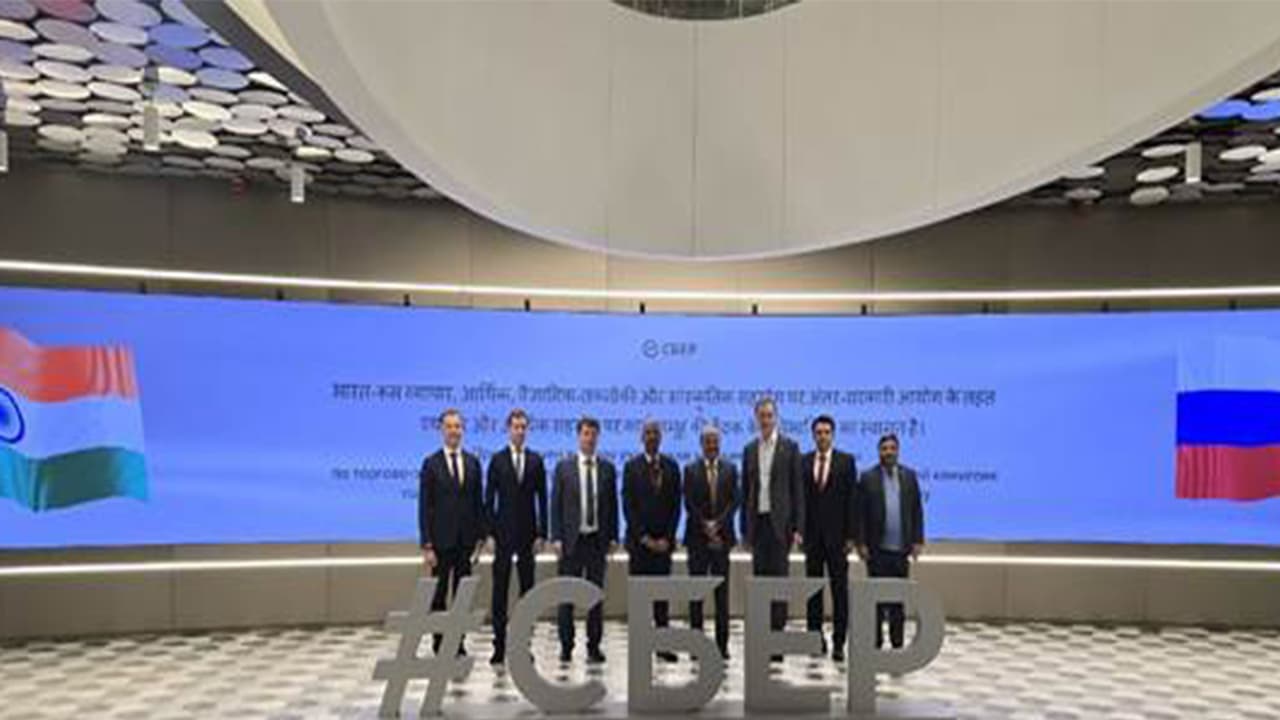Business
India and Russia Target $100 Billion Trade by 2030

India and Russia have set a bold target of achieving a bilateral trade volume of US$100 billion by 2030. This objective was established during the 26th Working Group meeting on Trade and Economic Cooperation, held on March 14, 2024, where both nations assessed their trade performance. Notably, their trade has more than doubled from the US$25 billion benchmark set in 2014.
The meeting took place under the auspices of the Inter-Governmental Commission on Trade, Economic, Scientific, Technological and Cultural Cooperation (IRIGC). Indian Commerce Secretary Rajesh Agrawal and Russian Deputy Minister of Economic Development Vladimir Ilyichev led discussions aimed at enhancing trade ties.
Reviewing Bilateral Trade Progress
During the meeting, the two sides highlighted the significant growth in bilateral trade, which has surpassed the 2014 levels. The discussions culminated in the signing of a forward-looking protocol that outlines cooperation across various sectors. Secretary Agrawal emphasized the importance of expanding trade relationships and proposed several confidence-building measures.
Key points of discussion included the expedited listing of Indian establishments in Russia and the implementation of a systems-based approach with respect to the Food Safety and Standards Authority of India (FSVPS) in agriculture. This is particularly relevant for marine products, as well as establishing a clear pathway for the registration and regulation of pharmaceuticals.
The Working Group also identified opportunities for collaboration in sectors such as engineering goods, chemicals, plastics, electronics, pharmaceuticals, agriculture, leather, and textiles. Indian strengths in areas like engineering, smartphones, motor vehicles, and textiles were noted as potential contributors to Russia’s efforts in trade diversification and risk mitigation.
Enhancing Services Sector Engagement
The meeting placed a notable emphasis on the services sector, with Indian representatives advocating for increased procurement of Indian IT-BPM (Business Process Management), healthcare, education, and creative services by Russian businesses. Additionally, they discussed facilitating mobility for Indian professionals to address labour shortages within the Russian market.
India’s Global Capability Centre (GCC) ecosystem, which comprises approximately 45% of global GCCs and employs nearly 1.9 million professionals across over 1,700 centres, was presented as a resource for Russian companies. This ecosystem aims to bolster business continuity, enhance cybersecurity, and improve design and analytics capabilities, thereby strengthening supply chains for both goods and services.
The discussions also touched upon Russia’s interest in concluding a bilateral investment treaty. Both sides agreed to explore payment solutions tailored to the needs of businesses, particularly small and medium-sized enterprises.
In summary, the meeting reaffirmed the special and privileged strategic partnership between India and Russia, a relationship that has endured through various global changes. The agenda set forth aims at diversifying trade, creating more resilient supply chains, and aligning both nations toward the ambitious 2030 trade target.
-

 World4 months ago
World4 months agoSBI Announces QIP Floor Price at ₹811.05 Per Share
-

 Lifestyle4 months ago
Lifestyle4 months agoCept Unveils ₹3.1 Crore Urban Mobility Plan for Sustainable Growth
-

 Science4 months ago
Science4 months agoNew Blood Group Discovered in South Indian Woman at Rotary Centre
-

 World4 months ago
World4 months agoTorrential Rains Cause Flash Flooding in New York and New Jersey
-

 Sports4 months ago
Sports4 months agoBroad Advocates for Bowling Change Ahead of Final Test Against India
-

 Top Stories4 months ago
Top Stories4 months agoKonkani Cultural Organisation to Host Pearl Jubilee in Abu Dhabi
-

 Science4 months ago
Science4 months agoNothing Headphone 1 Review: A Bold Contender in Audio Design
-

 Top Stories4 months ago
Top Stories4 months agoAir India Crash Investigation Highlights Boeing Fuel Switch Concerns
-

 Sports4 months ago
Sports4 months agoCristian Totti Retires at 19: Pressure of Fame Takes Toll
-

 Business4 months ago
Business4 months agoIndian Stock Market Rebounds: Sensex and Nifty Rise After Four-Day Decline
-

 Politics4 months ago
Politics4 months agoAbandoned Doberman Finds New Home After Journey to Prague
-

 Top Stories4 months ago
Top Stories4 months agoPatna Bank Manager Abhishek Varun Found Dead in Well









